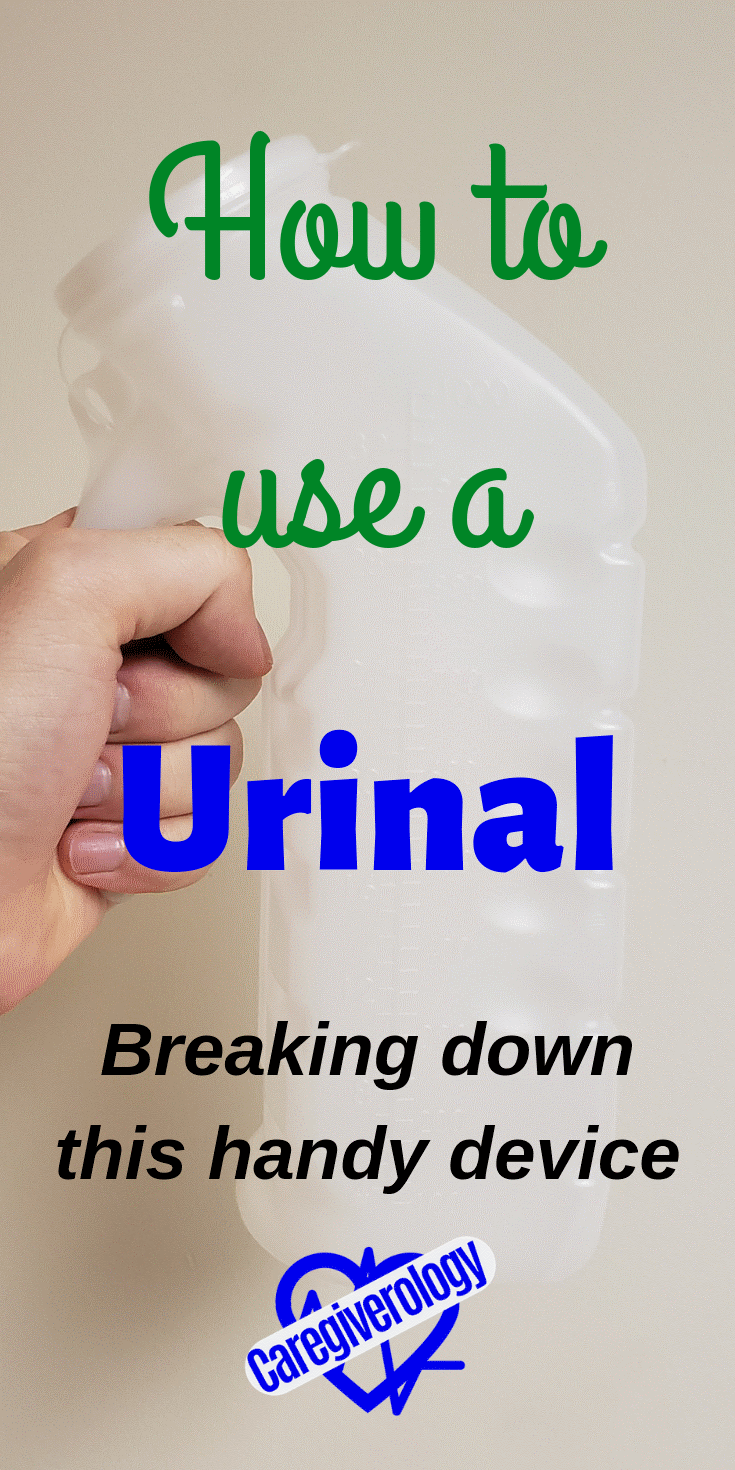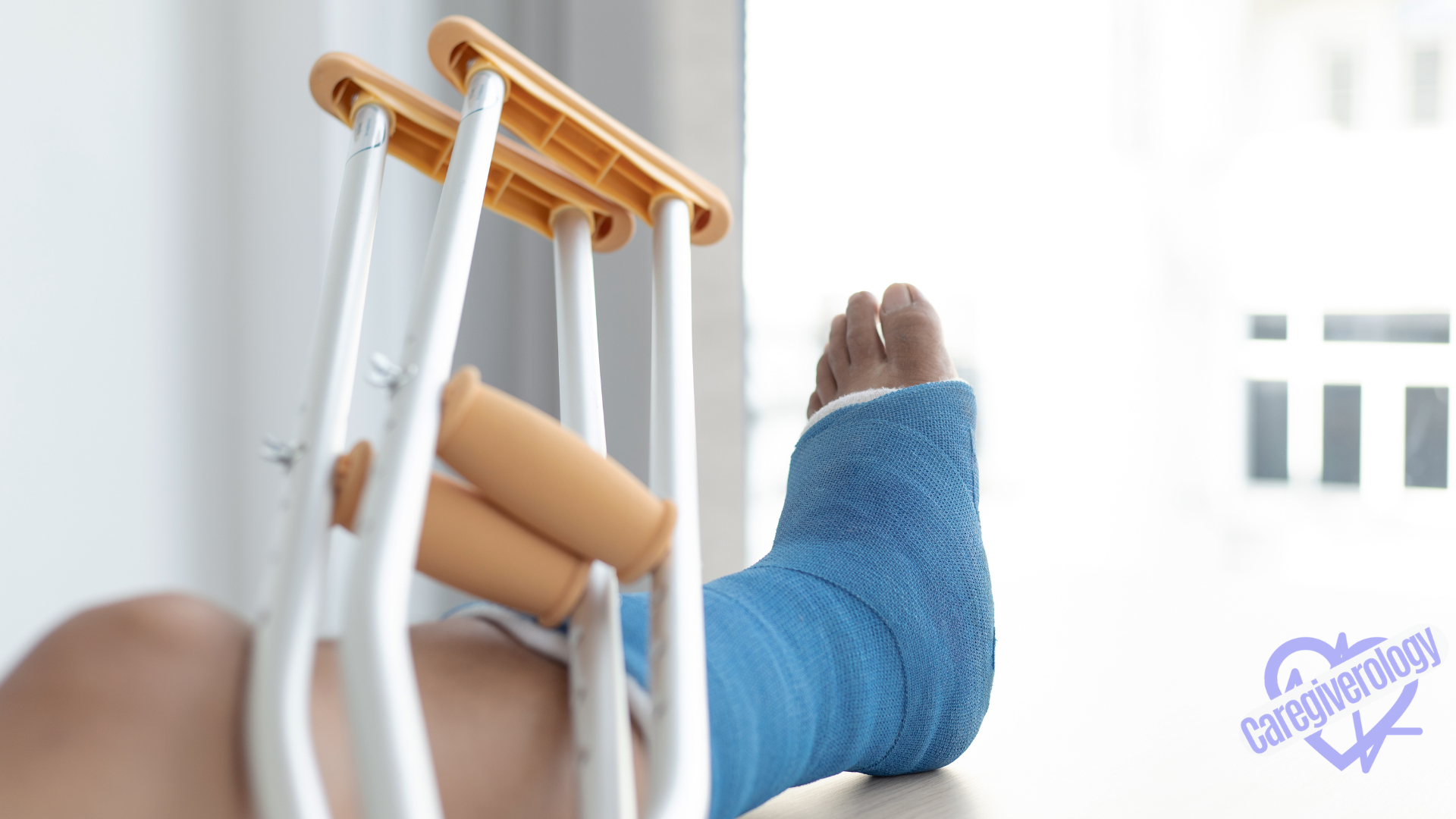How to Use a Urinal
A urinal can work miracles for male patients who have to urinate who are on bedrest or cannot ambulate to the bathroom. They are much easier to use than a bedpan and bedside commode for you and for them.

What is it? How to use Female Suggestions
What is It?
A urinal is a bottle with a sideways opening and a handle. Most can hold a liter of urine. It really is a rather simple device but it's all the patient needs.
An interesting thing the hospital where I work has experimented with is glow in the dark lids. It sounds silly but it really does make it much easier to find in dark. It may save them from having an accident if they wake up with a strong urge and need to find it quickly.
How to Use One
Most male patients who aren't incontinent are capable of using a urinal by themselves but depending on their condition, you may have to hold it in place for them. Either way, using one is simple.
Hold it by the handle and position the bottle on it's side with the opening facing up. Very gently place the penis inside the bottle's opening while the bottle stays flush with the bed. If the bed is adjustable, you may have to lower the foot of the bed in order for it to lay flush and not spill.
After the bladder empties, you can then remove the bottle and measure the outtake if needed. Most have measurements on the side so it can be measured simply by turning it upright. Don't try to balance and eyeball the bottle, make sure you set it on a flat surface and wait for the urine to settle to get a proper measurement.
Then dump the urine in the toilet and rinse it out. In hospitals and similar facilities, there is usually a spray nozzle attached to the toilet for rinsing such things to make it that much easier.
After that, you should close the lid and place it close to the patient for later use. In the hospital where I work, the handle slips right onto the patient's side rail on their bed for easy access. Patients will know where it is and can place it back after they use it so I can empty it for them. It keeps it out of the patient's way and it's more sanitary than placing it on their bedside table.
Female Urinal
Yes, there is one for females as well. The only difference is the opening. It is slightly taller but thinner and curves inward. You gently spread the labia and place it flush inside.
I have only assisted one patient with one so they aren't nearly as widespread as the ones for males. My guess is because they really don't work very well. When I was assisting the patient, there was at least a minor spill every time. Of course this may not be the case for everybody.
Some Final Suggestions
If the patient uses the urinal themselves, it may be a good idea to check and make sure they didn't accidently spill the bottle. I have known many patients who didn't think there was a spill but upon checking, I find there was. Better safe than sorry.
I have known some patients who like to keep one in between their legs for hours at a time so they can go whenever they need to. This is especially common after they have had a foley catheter taken out.
Of course it is their right to use it however they want but I personally do not recommend it because I have seen it cause irritation and swelling of the penis. If at all possible, convince them to just use it as needed.
List of Caregiver Supplies and Equipment
From How to Use a Urinal to Home
Recent Articles
-
What to Expect During Post-Operative Recovery at Home - Caregiverology
Apr 08, 25 08:21 PM
Surgery may be over, but the journey to full recovery is just beginning, and for many people, the hardest part happens after they leave the hospital. -
How to Plan for Aging: Financial, Health, and Lifestyle Considerations
Mar 29, 25 12:40 PM
Did you know that 70% of people over 65 will need some form of long-term care? Yet, many delay planning until it’s too late. Aging is inevitable, but how we experience it depends on preparation. -
Speech Disorders: How to Know When It's Time to See a Professional
Mar 27, 25 07:05 AM
When it comes to human interaction, we need to be able to communicate effectively.





New! Comments
Have something to say about what you just read? Leave a comment in the box below.